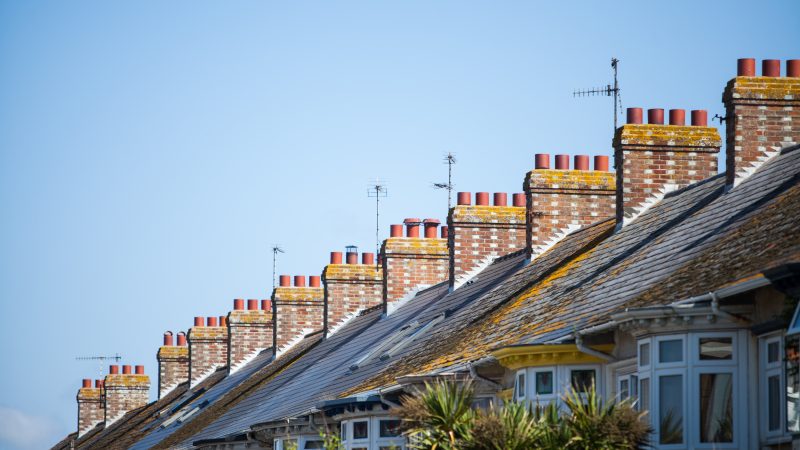
High quality, pride-worthy and affordable housing must be a fundamental objective for our government, community leaders and social investors. This is challenging in itself, but it must also come with a wave of creativity to ensure that developments are defined by facilities and community assets that allow people to flourish.
It is self-evident to politicians, and the public at large, that we have a housing crisis. Hardworking young people are being sold a dream that their aspirations will be rewarded, only to be excluded altogether or encouraged to enter into financial arrangements that look like Gordon Gekko played a role. Soaring rents displace both professionals and lower-income communities away from expensive urban areas seen as glowing hot investment opportunities. Thousands are homeless across the country, often resulting in the tragedy of vulnerable people sleeping on streets, sometimes exploited for sex or pushed into illicit drug use and trade. Another huge cohort of families see children and parents taking up tenancy on multiple sofas; moved around temporary accommodation and living with the indignity of uncertainty and compounding economic barriers.
Poor housing or no housing at all is unambiguously a cause of crime – one aspect of deep poverty, leading people to be pushed to the edge through desperation. This, of course, has been dangerously inflamed by the cost-of-living crisis and the government’s visible failure to build long-term plans for energy, food and housing security. Instead, policies betray short-term thinking and status-quo logic. The middle classes and those in destitution both share the brunt of tax rises, energy bill hikes, transport cost inflation and growing food bills.
For the most isolated, inflation means children are exploited by adults into organised crime for money, women forced into sex work and crimes of theft made inevitable as people turn to desperate acts to get the rent and food in.
High quality housing is known to be a fundamental condition for helping people rehabilitate from crime, particularly when leaving prison. Sadly the condition is rarely met, and recent revelations about the unregulated housing market for supported accommodation has highlighted shockingly low levels of provision for people on the edge. And dignified accommodation is just as important for preventing crime in the first place – whether supporting young people who are in care as a result of traumatic family circumstances or adults who have fallen into poor mental ill health and addiction, from ex-veterans suffering from the traumas of war to people who turned to substance misuse as a result of long-term domestic abuse.
Excellent housing, then, is an urgent need for both the needy and those who are starting their lives on a path of optimism and hope. Vitally though, any ambitious programme of home building needs fresh thinking. Whether we are looking at affordable rents, first time buyer properties, key worker housing or simply increasing housing stock for larger families, we need to further recognise those elements that make for a sense of real community.
The notion of ‘social prescribing’ has become popular, and I can see why. This movement champions the prescription of things like walking, music and other non-clinical ways of establishing wellbeing as a way to stem the mental health crisis seen across the country. We need it because this profound dip in mental health spurs problems as broad as youth violence and loneliness in old age. The awareness of the things that make life worth living should therefore be central to expanding our new housing estates.
This is a key principle of the co-operative housing movement. One of the main priorities for co-operatives is to ensure tenants and communities benefit from the rents they pay, rather than risk being exploited by ever growing private rents. There is, however, so much more to the co-operative ambition than this. It comes with an ethos of seeing housing as being more integrated with wider community elements – ones that should feature in the visions of our elected leaders.
If we want our new affordable housing estates to tackle the vulnerabilities, health inequalities and social isolation suffered by many, developments should come with meaningful thought as to how people can participate in life fully. This means new sports facilities: swimming for parent and toddler groups, dancing classes and organised and accessible youth activities as standard. For families whose lives have been besieged by crisis, brand new family hubs should become positive, friendly and enjoyable centres of the community where people get their cups of tea, coffee and health advice. Community venues that host music, arts and parties should not be an after-thought, and consideration should be given to ensuring new residents of these communities take an ownership stake on arrival.
In the aftermath of Covid, generating a real sense of belonging and influence over a community asset can bring people together at a time where it is needed more than ever. Community gardens should be thought of as fundamental, not a nuisance or burdensome cost – the pride, friendship and health benefits that come from communally owned gardens make for an aesthetic and collaborative culture. In turn, people want to stay in a place for decades – instead of contributing to the short-term carousel witnessed in private lettings.
Nothing here is brand new, except for the commitment to making community assets central and not a postcode lottery win. And as with most good public policy, the problems such designs helps prevent save the state so much more than it costs. Rewarding aspiration, reducing crime and building happy and longer-term communities, are the prizes for a new era of ambitious community housing.




More from LabourList
Nudification apps facilitate digital sexual assault – and they should be banned
Diane Abbott suspended from Labour after defending racism comments
Labour campaign groups join forces to call for reinstatement of MPs